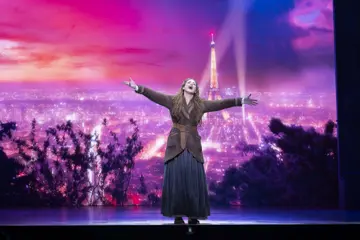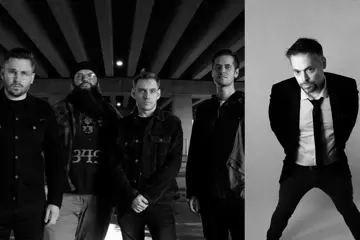When Pablo Berger heard about the existence of Michel Hazanavicius's The Artist, he was filled with rage. The Spanish director had spent years trying to erect his own lavish shrine to black-and-white silent cinema, Blancanieves, and now its novelty value would be lost. Perhaps Berger was right to lament his fortune - maybe Oscar nominations and copious cash went up in smoke when Hazanavicius beat him to the Weinstein chequebook - but his own film is far from a failure, nor is making a new-millennial take on pre-talkie pictures a two-movie tale. Guy Maddin, for one, has spent two decades gleefully defiling the corpse of expressionist silent cinema. And the greatest influence on Blancanieves doesn't seem to be Abel Gance or Luis Buñuel or Josef von Sternberg, but Pedro Almodóvar's 2002 masterwork Talk To Her, which pirouetted through toreadors and folksong, and stopped for a seven-minute silent film of its own, The Shrinking Lover. Though calling Blancanieves a silent-film evokes so much of what it's going for - all high-contrast black-and-white and archly-ironic intertitles; its 1920s period setting playing into the homage-to-an-era-past - it is, really, anything but silent. It may boast no dialogue, but it's filled with music; and it sets its rhythms to furious flamenco and tortured tango; with the pageantry and sweep of the corrida adding to the melodrama.
The Artist may loom for many viewers (I was more thinking of the third act of Miguel Gomes' Tabu, with its square-format visuals and ironic commentaries on romanticising the past), but Blancanieves doesn't worship self-fulfilling Hollywood mythology, even if it was conceived as homage to the cinema of a century ago. As its title suggests, it's a play on the Snow White folktale, its Grimm-ness transplanted from Gothic, shadowy Germany to a bright, sunkissed Andalusia. Its story is, thus, familiar: Carmen (Macarena García) is the daughter of a bullfighter (Daniel Giménez Cacho) and a dancer (Inma Cuesta), orphaned and raised by a wicked stepmother (Maribel Verdú). Eventually there's even dwarves, a poisoned apple, and a search for a prince charming; but the film is a loose adaptation, and all the better for it. Verdú becomes, for a stint, the apple of its highly-stylised eye, playing her social-climbing stepmother as a kind of proto-socialite: a vain clothes-horse posing and posturing through photoshoots and shrines to her public image. Trussed in ridiculous finery, underneath the haute couture she seems gaunt, naught but scheming skin-and-bones; Verdú's cheekbones set so sharply that you're drawn to see the skeleton beneath. In contrast, García is all apple-cheeks and white teeth, wide-eyes forever glistening - be it with wonder or tears - for Berger's camera. That camera loves her, giving the worn-out narrative a sweet sting; and the director isn't afraid of taking this Blancanieves to places dark or perverse, comic or tragic. And for all the visual flair Berger shows throughout - like: an explosion-of-memory set to frenetic guitarra strums; offering a postmodernist take on the frenetic montage of Soviet silent cinema - it's never better than its profound final shot, when it commits wholly to such tragedy; sounding out with a final sad note that underlines this Snow White's unexpectedly-tortured quality.
With a single shot, Ursula Meier conveys the theme of Sister without saying a word: high up in frame towers the peak of a Swiss Alp, snow glowing in sunshine, a rarefied heaven on Earth; down below lays the gateway town in its shadows, all chain motels, gas stations, and blocks of council-estate housing. That upstairs/downstairs divide is as old as time immemorial, but Meier's symbolic shot of inequality carries more power than ever in the 21st century, in which this division is operating at historical extremes. Navigating these two different worlds is the province of Kacey Mottet Klein, a mischievous scamp who works as a thief on the snowfields, stealing from the rich and fencing the black-market goods to those - like local kids or seasonal workers - of a lower tax-bracket. Klein - who at 12 is, in the spirit of the great philosopher Britney Spears, not a boy, not yet a man - has the feeling of an orphan in wartime; his black-marketeering a survival-mechanism that keeps food on the table for he and his white-trashy older sister, Léa Seydoux, who seems to step out of the car of a different “jerk” each time she comes home (when, indeed, she does). There's a weird pseudo-sexual subtext to their relationship that grows increasingly perverse once Meier quietly divulges the backstory secrets; one scene, in which Klein pays a pissed-off Seydoux to cuddle him in bed, hints at the complexities of that perversion. On one hand, they're a pair of lost souls marooned together, desperate to be loved yet unable to fulfil what the other wants them to be; on another, they're their own symbols, of how all human relationships are underpinned by money.
Yet, for all its savage psychodrama - which is constantly underplayed and determinedly free from soapy suds - Sister is a piece of unabashed socio-realism. As we follow Klein through the repetition of his daily routines, the spectre of the Dardennes lingers, and when onetime Ken Loach muse Martin Compston (from Sweet Sixteen and Tickets) turns up as a Scottish seasonal worker, it borders on homage; which marks a change from Meier's debut, the more-satirical parable Home. As its profound mountain-shot illustrates, Sister doesn't just explore the divide between rich and poor, but the intimate proximity; at how, say, a hotel's guests and its maids move through the same rooms. There's a run of moving, uneasy scenes in which Klein, on the make, inveigles himself into the life of Gillian Anderson and her kids; seeing them as the fantasy family he's never had. Instead of stealing from them, he offers to pay for everything; his great grift being briefly on equal footing with these from-a-dream figures of wealth, togetherness, and happiness (Meier, amazingly, admits that she cast Anderson because, to Klein, this family is supposed to represent 'science-fiction'). His time in their midst, and under the sun, is fleeting; but so is everything on the mountain. The furious business of high season is a peak from which there's a steep drop; soon the powder melts, the chairlifts are shut off, and the seasonal workers skip town. Meier doesn't allow sentimentality to suggest anything other than a grim future for these siblings, no matter the season; and a remarkable closing image - at once tantalising and heartbreaking - leaves Sister lingering long after it fades to black.
Don't miss a beat with our FREE daily newsletter















